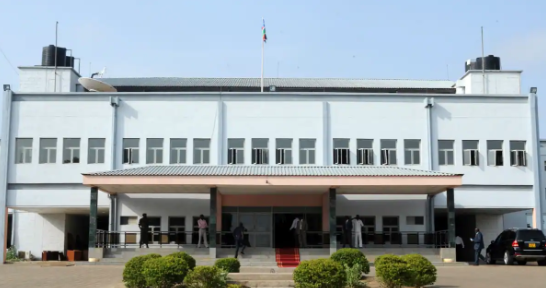The Transitional National Legislative Assembly (TNLA) on Monday passed the National Elections Act 2012 (Amendment) Bill 2023 from the second to the third reading.
In an ordinary sitting of the TNLA chaired by Oyet Nathaniel Pierino, the first deputy speaker, the chairperson of the specialized committee on legislation and justice, Dr. James Mabor Gatkouth, presented the bill which was initially tabled before the parliament on the first reading by Justice Minister Ruben Madol in June.
In his report, Dr. Mabor said the committee examined the general principles of the bill and consulted the peace agreement, Transitional Constitution 2011, and other related legislations from Kenya and Uganda to benefit from best practices.
He said they observed that the chief administrators of the administrative areas are not centered in the National Election Act 2012.
Mabor also stressed that the committee observed that the parties and stakeholders did not come to a complete agreement on several outstanding issues related to sections 60, 61, and 63 of the National Elections Act 2012 (Amendment Bill) concerning the nature of the electoral system to be applied to women, youths, and persons with disabilities.
However, in reply, Beatrice Aber Samson. an SPLM party legislator representing Magwi County in Eastern Equatoria State observed that the amendment bill should be inclusive.
“The chair of the committee highlighted that there are areas that need to be included. Hon. Speaker, I hope you will not treat this bill like other bills where we are only required to pass without even inserting a comma or full stop,” she said. “This is a very important bill and you know how important inclusivity is in this process.”
Another SPLM lawmaker, Janet Ayaa Alex of Morobo County in Central Equatoria State, said the committee should find a way of fixing the issue of women representatives in parliament like is the practice in Uganda and Kenya.
“I would have assumed that they would capture from those two countries how women, youths, and people with disabilities are elected and unfortunately their visit seems to have not yielded anything,” she said. “They should go back to their notes and include the best practices. I for one will say that the women list in the previous elections was comprehensive.”
“Each party provides a list of women for that particular state and they are elected but also in those two countries (Uganda and Kenya) each district or county has a women representative and if we want to practice it in South Sudan, each county should also have a women representative,” Ayaa added.
Grace Abalang, SPLM, from Eastern Equatoria State, said the bill should allow the IDPs to vote from the areas where they are as they get services from there because it will make no sense of transporting them to vote in their places of origin.
“The bill is saying the IDPs are supposed to vote in the constituencies where they live. Hon. Speaker, this is very true because you cannot live in a place as an IDP and you want to go and vote in your constituency while you get services from where you live,” she explained. “So, it will be very unfair if we want to transport IDPs to vote and then they come back and live where they are because that very government gives services within their localities even within their state.”
However, after a lengthy deliberation in which 15 lawmakers made submissions, Joseph Malek Arop, the deputy justice minister, asked that the debate be terminated and the bill be passed to the third reading with amendments which Deputy Speaker Oyet did.




